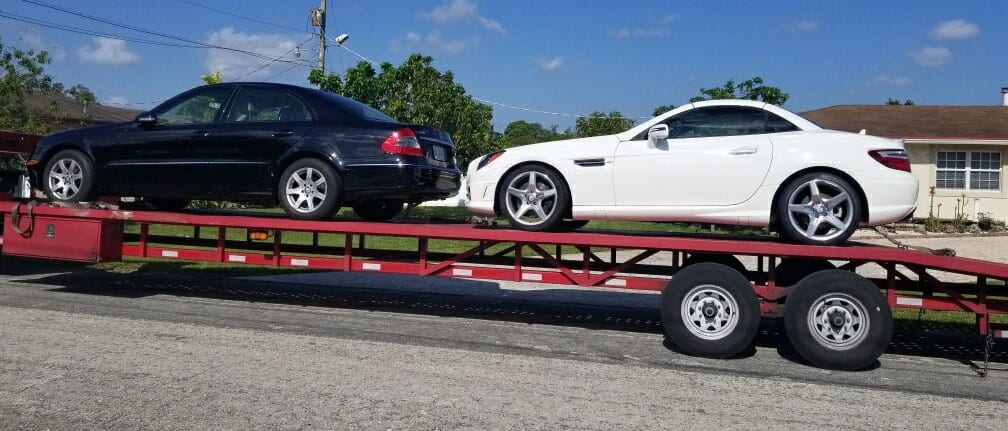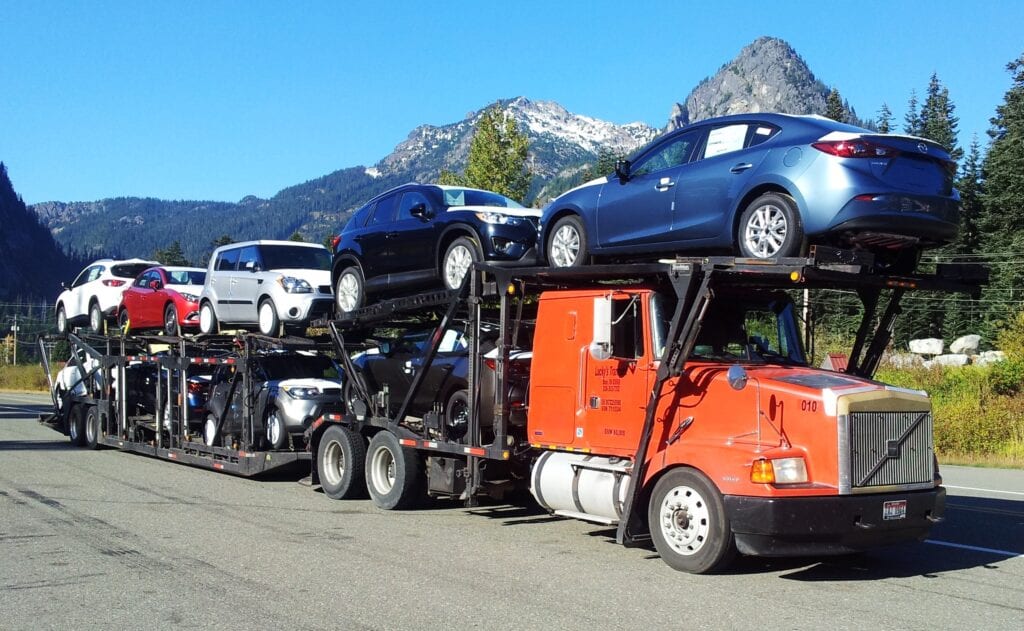Are you thinking about shipping your car to a different state? Well, before you hit the road, it’s important to know if there are any restrictions on shipping cars across state lines. After all, you don’t want to encounter any unexpected roadblocks along the way. So, let’s dive into this topic and find out what you need to know.
When it comes to transporting your four-wheeled friend across state borders, there are a few regulations you should keep in mind. Each state has its own set of rules and requirements, so it’s crucial to do your homework before embarking on this journey. From paperwork and permits to safety inspections and taxes, there are various factors that may affect the smooth flow of your car shipping plans.
But fear not! In this article, we’ll explore the common restrictions you may encounter when shipping cars across state lines. We’ll also provide helpful insights and tips to ensure a hassle-free experience. So, buckle up and get ready to hit the road with confidence!

Are there any restrictions on shipping cars across state lines?
The Process of Shipping Cars Across State Lines
Shipping a car across state lines can be a convenient option for individuals who are relocating or purchasing a vehicle from another state. However, before diving into the process, it is essential to understand if there are any restrictions in place. In this article, we will explore the topic of shipping cars across state lines and shed light on any potential limitations.
When it comes to shipping cars across state lines, there are generally no specific restrictions imposed by the government or federal regulations. However, it is important to note that each state may have its own set of rules and requirements when it comes to vehicle transportation. These regulations mainly focus on issues such as vehicle registration, insurance, and emissions compliance.
State-Specific Requirements
Before shipping your car to another state, it is crucial to research and familiarize yourself with the specific requirements of the destination state. Some states may require additional documentation, such as a bill of sale, proof of insurance, or a valid driver’s license. Failure to comply with these requirements can result in delays or complications during the shipping process. Additionally, certain states may have specific emissions standards that your vehicle must meet before it can be registered.
Moreover, it is essential to consider any temporary or seasonal restrictions that may be in place. For example, some states have winter weather-related regulations that restrict the transportation of certain vehicles during snowy or icy conditions. Being aware of these restrictions can help you plan your car shipping process accordingly and avoid any potential issues.
The Benefits of Using a Professional Auto Transport Company
When shipping a car across state lines, it is highly recommended to utilize the services of a professional auto transport company. These companies specialize in safely and efficiently transporting vehicles over long distances, ensuring a hassle-free experience for their customers.
One of the significant advantages of hiring an auto transport company is the convenience it offers. Instead of having to drive your car across multiple states, which can be time-consuming and exhausting, you can simply arrange for the company to pick up and deliver your vehicle to the desired location. This allows you to focus on other aspects of your move or travel plans.
Types of Auto Transport Services
Auto transport companies offer various services to cater to different customer needs. One popular option is open auto transport, where vehicles are transported on an open trailer. This is a cost-effective method and is suitable for most cars. However, if you have a high-value or classic vehicle, you may opt for enclosed auto transport, which provides added protection from weather conditions and potential road debris.
For those who require expedited shipping, many auto transport companies offer this service as well. Expedited shipping ensures that your vehicle is transported within a shorter timeframe, which can be beneficial if you have time constraints or require your car to be delivered urgently.
Get FREE Auto Transport Quote
(Complete the form below for free reliable vehicle transport service quote)
Tips for a Smooth Car Shipping Experience
To ensure a smooth car shipping experience across state lines, here are some helpful tips to keep in mind:
- Research and choose a reputable auto transport company: Read reviews, check their licensing and insurance, and compare quotes from multiple companies to make an informed decision.
- Prepare your vehicle for transport: Remove any personal belongings, ensure the car is clean and in good working condition, and take photos of its current condition for documentation purposes.
- Stay in communication with the auto transport company: Keep track of the progress of your shipment and address any concerns or questions promptly.
- Review the terms and conditions: Familiarize yourself with the contract and understand the company’s policies on insurance coverage, pickup and delivery windows, and any potential additional charges.
Discover the Best Auto Transport Company for Your Needs
When it comes to shipping cars across state lines, eShip Transport Company is a top choice. As a renowned auto transport company, they offer reliable, secure, and efficient vehicle transport services nationwide. Whether you need open auto transport, enclosed auto transport, or expedited shipping, eShip Transport has you covered.
With their Platinum Protection Plan, you can have peace of mind knowing that your vehicle is fully insured during transport. Their dedicated customer service team provides personalized assistance throughout the entire process, ensuring a smooth experience from start to finish.
Don’t settle for less when it comes to shipping your car across state lines. Choose eShip Transport, the trusted name in auto transport. Discover the best auto transport company for your needs today!
Key Takeaways: Are there any restrictions on shipping cars across state lines?
- Shipping cars across state lines is generally allowed, but there may be specific regulations and requirements to follow.
- Some states require documentation like titles, registration, and insurance to be in order before shipping a car.
- Certain states have restrictions on vehicle emissions and safety standards that need to be met for shipping.
- It’s important to research and understand the regulations of both the departure and destination states before shipping a car.
- Working with a reputable auto transport company can help navigate the process and ensure compliance with all necessary regulations.
Frequently Asked Questions
What are the general restrictions on shipping cars across state lines?
When it comes to shipping cars across state lines, there are a few general restrictions that you should be aware of. Firstly, you need to ensure that the vehicle meets all the legal requirements for roadworthiness in the destination state. This may include passing a safety inspection and having the necessary documentation such as registration and insurance.
Additionally, some states have specific regulations regarding emissions standards or vehicle modifications. It’s important to familiarize yourself with these requirements to avoid any complications or delays during the shipping process. Lastly, certain states may have restrictions on the types of vehicles that can be imported, particularly if they are considered exotic or high-end.
Are there any weight or size limitations for shipping cars across state lines?
Yes, there are typically weight and size limitations when it comes to shipping cars across state lines. These limitations are put in place to ensure the safety of the vehicle, the transport truck, and other road users. The specific limitations may vary depending on the state and the type of vehicle being transported.
It’s important to work with a reputable car shipping company that is familiar with these regulations and can advise you on any necessary modifications or special arrangements that need to be made to comply with the weight and size restrictions. Failure to adhere to these limitations could result in fines or delays in the shipping process.
Do I need any special permits or paperwork to ship a car across state lines?
While the paperwork required to ship a car across state lines may vary depending on the specific circumstances, there are generally some common permits and documents that you will need. Firstly, you will need proof of ownership, such as the vehicle’s title or registration. This is essential to ensure that you have the legal right to transport the vehicle.
In addition to ownership documents, you may also need a bill of lading, which is a document that outlines the details of the shipment and serves as a contract between you and the car shipping company. Depending on the states involved, you may also need temporary permits or trip permits to transport the vehicle legally.
Are there any restrictions on shipping antique or classic cars across state lines?
Shipping antique or classic cars across state lines can come with some additional restrictions. Many states have specific regulations in place to protect these valuable and often irreplaceable vehicles. These restrictions may include additional documentation requirements, such as proof of the vehicle’s historical significance or authenticity.
In some cases, you may also need to obtain a special permit or license to transport antique or classic cars. It’s important to research the specific regulations in both the origin and destination states to ensure compliance and a smooth shipping process for your treasured vehicle.
Do I need to prepare my car in any specific way before shipping it across state lines?
Prior to shipping your car across state lines, it’s important to prepare it in a specific way to ensure its safety during transport. Start by thoroughly cleaning both the interior and exterior of the vehicle. This will allow you to accurately assess its condition before shipping and make note of any pre-existing damage.
Next, remove any personal belongings from the car to prevent them from getting lost or damaged during transit. It’s also a good idea to take photographs of the vehicle from various angles to serve as documentation of its condition before shipping. Finally, ensure that the fuel tank is no more than a quarter full to reduce the risk of leakage during transport.
Final Summary: Are there any restrictions on shipping cars across state lines?
So, you’re thinking about shipping your car across state lines? Good call! But before you hit the road (or rather, let someone else hit the road for you), it’s important to know if there are any restrictions in place. After all, you don’t want any surprises along the way, right?
Well, the good news is that shipping cars across state lines is generally allowed in the United States. However, there are a few things to keep in mind. First off, different states may have varying regulations when it comes to vehicle transportation. Some states might require specific permits or documentation, while others may have restrictions on the type of vehicles that can be shipped. It’s essential to do your research and check the requirements of both the state you’re shipping from and the one you’re shipping to.
Another factor to consider is the transportation company you choose. Not all transporters are created equal, and some may have their own set of rules and restrictions. Make sure to select a reputable and reliable company that is knowledgeable about interstate car shipping and adheres to all necessary regulations. Reading customer reviews and getting recommendations can go a long way in finding the right transport partner.
In conclusion, while there may be some restrictions on shipping cars across state lines, it’s generally a feasible and convenient option. Just be sure to do your homework, check state regulations, and choose a reliable transportation company. With these considerations in mind, you’ll be hitting the road (or rather, having your car hit the road) in no time! Safe travels!







